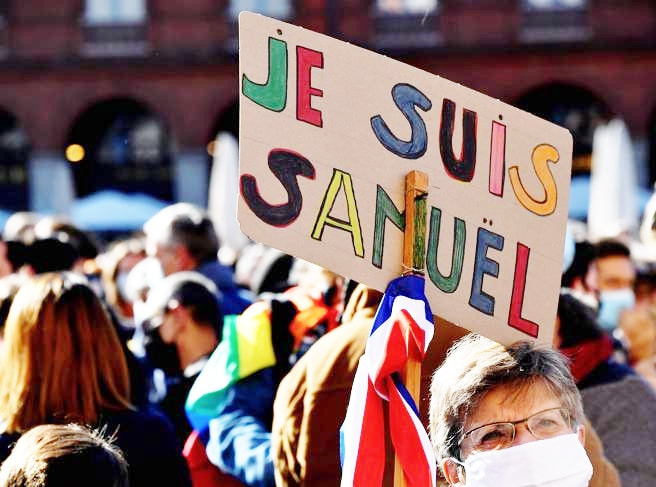|
Diversity: a problem to be solved...or an opportunity to be grasped? What do you think? 'Whatever affects one directly, affects all indirectly.' (Martin Luther King) DEI, EDI, DIE..acronyms, used interchangeably with a similar meaning. It’s the stuff of diversity, equality/equity and inclusion. If the very sight of those words makes you yawn with boredom or roll your eyes with frustration, DEI experts and advocates need to ask why. To see a glowing example of passion, creativity and inspiration in this arena, have a glance at Shine! The challenges that EDI sets out to tackle are important, complex and human. They affect very real, vulnerable and disenfranchised people in organisations and the wider world. Most DEI policies and plans I see represent implicitly: (a) a legal rights-based approach; that is, to offer protection against illegal discrimination, and ensure equality of access to opportunities and resources; and (b) a humanistic values-based approach; that is, to treat everyone respectfully as human beings, and appreciate the differences between people. Both offer a critical baseline for healthy conduct and behaviour in liberal-democratic societies. We could think of these approaches as, essentially, ideologically-based. They flow from a vision of organisations and societies in which, in particular, people and groups that are non-dominant and less-privileged are offered special protection and support so that they, alongside others, can enjoy free and fulfilling lives. They recognise a genuine risk in any group or society that less-powerful people will be and become marginalised by the cultural interests and priorities of the privileged majority. Against this backdrop, EDI initiatives often prioritise, first and foremost, legal and policy requirements as core foundations. An underlying challenge for these types of ideological approaches is how to gain and sustain traction if others, especially those in powerful positions, don’t share the same vision and values, or a desire to prioritise them. An unintended consequence of effective recent social-political lobbies such as LGBTQ+, BLM and Extinction Rebellion has been to create a silent-silenced group that, for reasons of expediency, presents a convincing, socially-presentable façade, yet with no real substance behind it or commitment to change. Climate activist Greta Thunberg calls this out as the cynical ‘Blah, blah, blah’ phenomenon. For the DEI venture to exert greater transformational influence and impact, I believe those who promote it need to become better at evaluating and demonstrating the tangible benefits of diversity: especially to the pragmatist-sceptics. It’s not enough to create and enforce laws and policies, important as they are for protection, equality and inclusion. It’s not enough to appeal for kinder, fairer and more tolerant organisations – although, as a follower of Jesus – I see such qualities as having intrinsic value. EDI's core proposition that 'diversity is a good thing' will prove far more persuasive if it can show convincingly why. I may have something useful to offer here. For many years, I have had the privilege of working internationally with leaders and professionals from diverse cultures and backgrounds. I often use a powerful, small-group, peer-coaching method called ‘Action Learning’. It enables people who face wicked problems to make better decisions, faster. Diversity in such a group is a critical success factor because it enables a person to unpack an issue, stress-test her or his assumptions and create innovative solutions – precisely because peers pose stretching questions from vastly different perspectives and experience-bases. One organisation I worked with had a strong commitment to DEI. It employed people from a wide range of countries and backgrounds and worked hard to ensure that everyone was treated in the same way. Ironically, its efforts had inadvertently blinded it to the value of difference. It missed completely the significant potential that such diversity can offer when running projects, dealing with challenging issues etc. I invited the leaders to engage in a simple experiment – to create problem-solving and innovation teams based on radical diversity as the key team criterion, irrespective of formal role. The results were truly astonishing. As EDI progresses, develops and learns, I believe that this kind of testing, evidencing and presenting of practical benefits, alongside issuing or enforcing an ethical call, will prove vital and fruitful. It will be an invaluable area for further research. I work with asylum-seekers and refugees who often feel depressed and frustrated by being characterised as helpless victims, rather than as resourceful contributors who want to show they can make a difference. Legal rights-based and humanitarian values-based approaches to DEI are a critical bedrock. A benefits-outcomes approach could ensure an additional life-giving dimension.
30 Comments
The brutal murder of Samuel Paty, a teacher in France on Friday, spun freedom of expression back into the media spotlight. Freedom of speech is, after all, a bedrock of Western democracy – not only the safeguarding of the expression of thoughts, feelings, and opinions but also, critically, the right and opportunity to be exposed to those of other people and groups too. The same principle applies in liberal education: learning, development, creativity and innovation emerge from the interaction of diverse insights, experiences and ideas; sometimes awkwardly or angrily if they clash, yet vital for healthy growth. Emmanuel Macron has described the current Kairos moment as an existential crisis: a fundamental conflict between secular, liberal European values and those of radical Islam. A broader cultural backdrop is, however, a struggle between freedom of speech and freedom from harm, where the latter includes freedom from offence. Brendan O’Neill commented last weekend that, in France, “cancel culture turned murderous…the (teacher’s) beheading was a militarised expression of (it).” The silencing of a voice, the no-platforming of a dissenting view, can lead to dire unintended consequences. Coming from a very different place politically to O’Neill, Douglas Murray struck a strikingly similar chord in, ‘The Madness of Crowds’ (2019/20): “We are going through a great…derangement”. Cultural and technological upheavals are driving humanity at breakneck speed into uncharted territories where many hitherto beliefs, values and assumptions are being stress-tested to their limits. Grasping at simplistic and polarising stances – no matter how irrational – is one way to feel safer and more purposeful in the world. So, question: What do these feverish times call for from us, as leaders, coaches, trainers and OD? |
Nick WrightI'm a psychological coach, trainer and OD consultant. Curious to discover how can I help you? Get in touch! Like what you read? Simply enter your email address below to receive regular blog updates!
|





 RSS Feed
RSS Feed